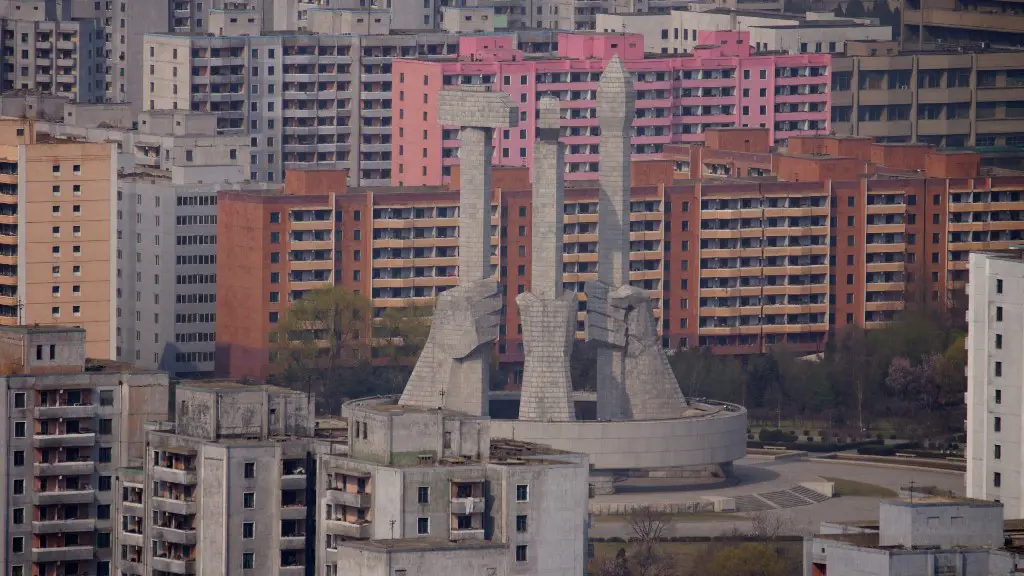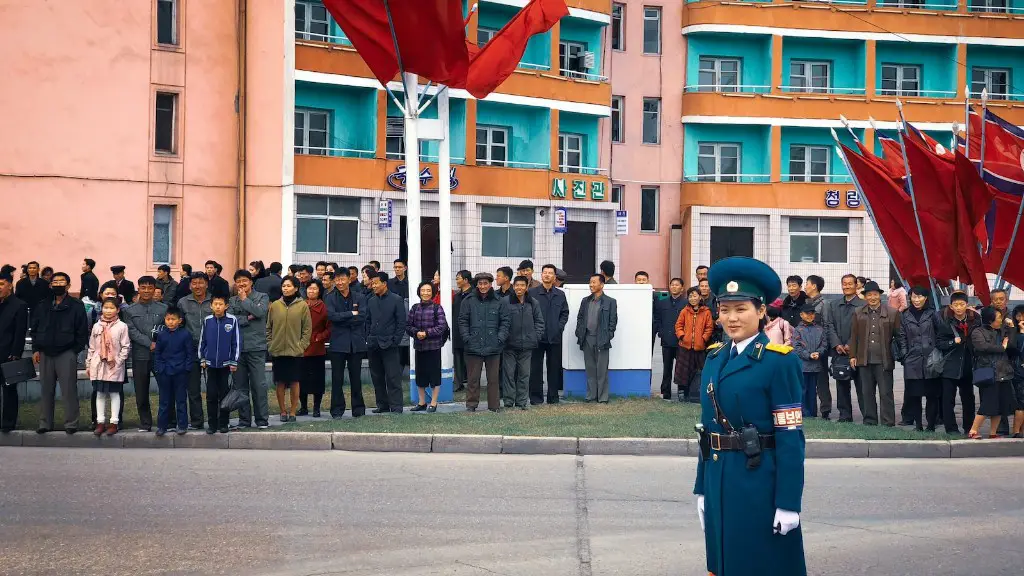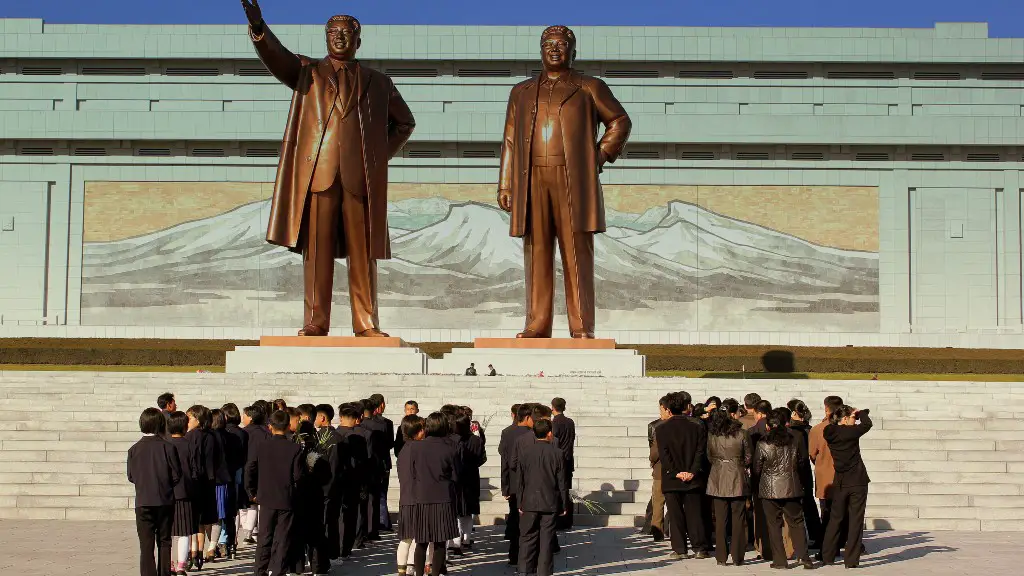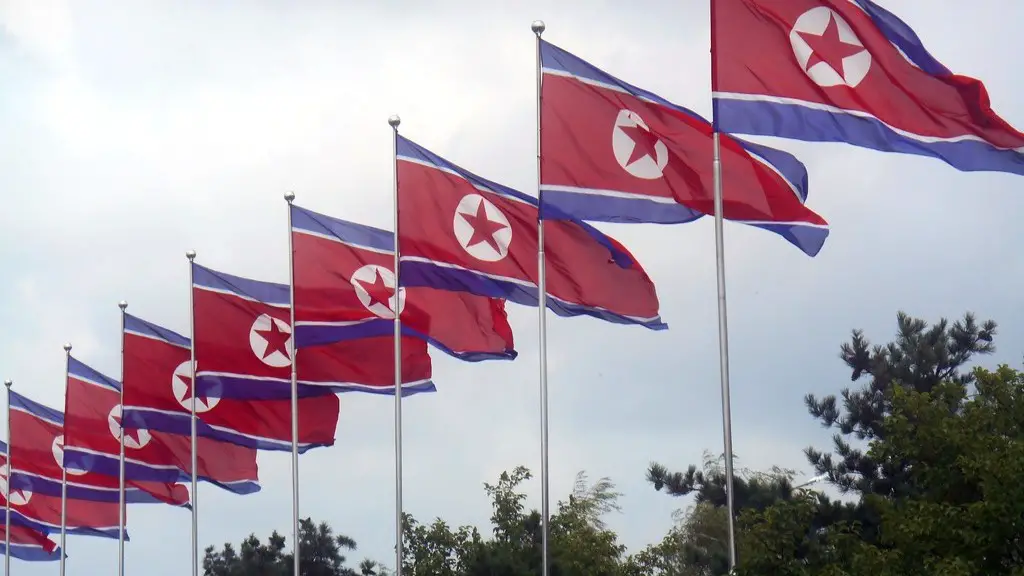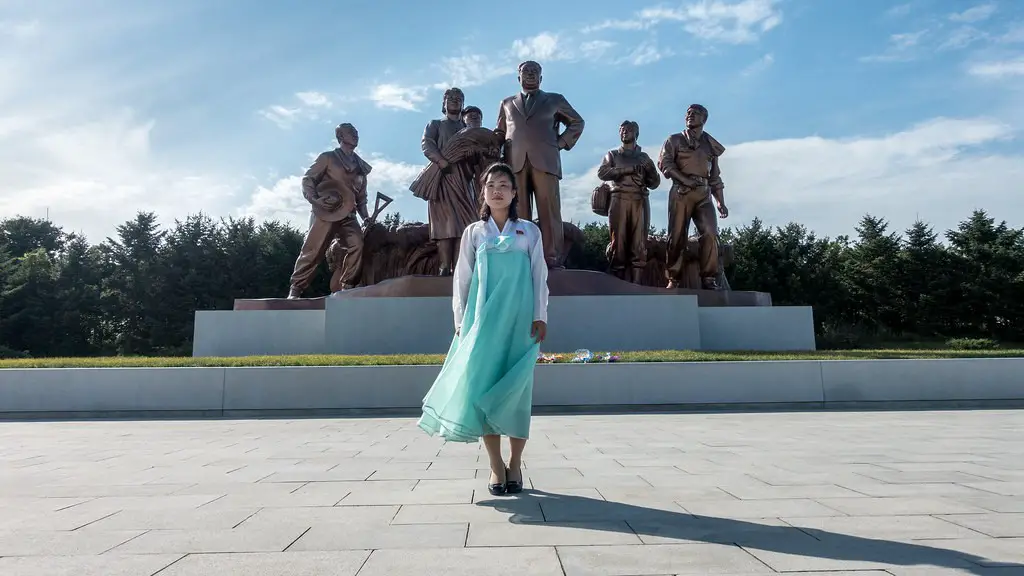The current state of tension between North Korea and the United States of America is as high as it has been in decades, leaving many people wondering what the spark was that caused such animosity between the two countries and why they are fighting. While accusations and threats to use military force have been common, the true underlying causes of the conflict often go unexplored. In order to better understand why North Korea and the United States are at such odds, it is important to consider the history of the two countries, the human cost of the ongoing conflict, and the possibility for a peaceful resolution.
Past Tensions
The above-ground tensions between North Korea and the USA have their origins in the end the Korean War in 1953, when the two countries signed an armistice and went their separate ways. Following the end of the war, the United States was keen to prioritize the promotion of democracy, while North Korea’s leadership was determined to keep its autocratic control of the country.
The different sets of ideals led to both mistrust and a strained relationship between the two countries. North Korea made it clear that it would not welcome any US presence on its territory, and the US government refused to recognize North Korea’s self-proclaimed Communist government. The US retained economic sanctions against North Korea, which have served only to further isolate the country and isolate its people.
Human Cost of Conflict
The human cost of this conflict is too often overlooked and overshadowed by the headlines in the media. Despite the armistice that ended the Korean War, tensions still remain between North Korea and the United States, leaving both sides in a state of constant alert. The citizens in North Korea live in a constant state of fear, as there is always the possibility of military retaliation should North Korea’s leadership decide to take a hostile stance towards the US.
It is estimated that in 2017 alone, almost $6 billion was spent by North Korea on its military, a figure that is more than the combined GDPs of countries such as Burundi, Djibouti and Bhutan. The economic cost of the military expenditure, on a country already facing economic hardship, has been immense, with the suffering being felt by the citizens of North Korea directly.
Possible Resolutions
The past few years have seen attempts from both sides to reach a resolution to the conflict, but none have been successful so far. While both the United States and Korea have held talks and maintained diplomatic relations, the underlying tension remains, and there is no clear end in sight. It is likely that the only way for the conflict to be resolved peacefully is for both sides to come to an agreement on the issues at stake and to commit to working together towards establishing mutual trust and respect.
To this end, North Korea has begun to slowly open up to the world and has recently made gestures of friendship towards South Korea and the United States, such as offering to send a delegation of athletes to the Winter Olympics in South Korea in 2018. These gestures have been met with cautious optimism and could potentially be a sign that North Korea is looking to move away from its previous isolationist policies.
Input From Experts
The current situation is a complex one, and input from experts in international dispute resolution is essential in order to better explore a possible solution. Professor Christopher Dacey of the University of Chicago is one such expert who believes that the current stalemate between North Korea and the US is unsustainable and can only be resolved if both parties are willing to engage in dialogue and explore new ways of building trust.
Professor Dacey recommends that the United States should consider offering economic incentives to North Korea, such as humanitarian aid, food supplies and medical supplies, in order to make it easier for the North Korean government to open up to the international community. He also suggests that the US should open up diplomatic channels of communication with North Korea, as this would offer a chance for both sides to discuss their differences and find common ground.
The Role Of China
It is also important to consider the role that China plays in this delicate situation. China is an ally of North Korea, and as such, its relationship with the US will be a key factor in determining how this conflict plays out. China has recently made moves to strengthen its ties with North Korea, and has also requested that the US provide incentives in order to convince North Korea to denuclearize.
It is clear that China has significant sway over North Korea and can be a powerful mediator between the US and North Korea. As such, constructive engagement between China and the US is essential for finding a peaceful resolution to the conflict, and is something both sides should be open to exploring.
On-Going Tensions
The current state of tensions between the US and North Korea have been ongoing for decades, and despite attempts from both sides to reach a resolution, a real solution has yet to be found. While diplomatic talks are certainly a good start, it is essential that both sides are willing to make concessions and focus on the common goal of establishing peace.
Unless there is a genuine political commitment from both North Korea and the United States to finding a peaceful resolution, the conflict will continue to fester and the citizens of North Korea will continue to suffer. It is for this reason that it is essential for both sides to keep trying to bridge the divide, and for the international community to be involved in this mission.
Attention From The Media
The current state of tension and animosity between North Korea and the United States has been the focus of intense media scrutiny in recent years, with much of the attention being focused on the potential threat of nuclear war. While the threat of nuclear war could easily become a reality if the two countries fail to discuss and resolve their differences, it is important to recognize that this situation extends far beyond the mere threat of military action.
The conflict between North Korea and the United States also arises from political, economic and ideological differences, and these issues cannot be resolved through military action. In order to ensure a peaceful resolution is reached, both sides must work together in good faith and abandon their own interests in favor of finding a solution in the interests of the entire region.
Economic Impact For The Region
In addition to the human cost of this ongoing conflict, there is also considerable economic damage being done to the region. As the United States has placed economic sanctions on North Korea, the entire nation’s economy has suffered as a result. This has had a ripple effect, not only on North Korea but also on its neighbors, as economic instability in the region makes it even more difficult for businesses to operate and for people to find work.
Furthermore, the prolonged period of heightened tensions has led to increased military spending in the region, further straining economies and causing a further shift towards poverty. The only way to alleviate the economic hardship is for the two sides to resolve their differences and allow the citizens of the region the opportunity to rebuild their lives and livelihoods.
International Pressure
The international community has a responsibility to ensure that tensions do not escalate any further and that a peaceful resolution is reached. The United Nations and other international organizations must continue to exert pressure on North Korea and the United States to engage in diplomatic talks and real negotiations, and to prioritize the interests of the region over their own.
It is also essential for other international players, such as China and Russia, to work towards a peaceful resolution. These countries have significant influence over the situation and therefore have a vested interest in seeing an end to the conflict. They should focus on providing support to both North Korea and the United States and provide a platform for these two sides to engage in constructive dialogue and constructive compromise.
Away From The Headlines
Ultimately, the focus should be placed on the human cost of this conflict and the importance of finding a lasting resolution that prioritizes the interests and wellbeing of the citizens of the region. Any attempts to resolve the conflict must be away from the headlines and instead focus on exploring ways of rebuilding trust between the two sides.
The United States and North Korea have a long history of conflict and mistrust, but there is still hope that a lasting resolution can be reached. Both sides must be willing to take the time to understand each other’s perspectives and objectives and to build bridges instead of walls. Only then can the conflict finally be put to an end and true peace be achieved.
